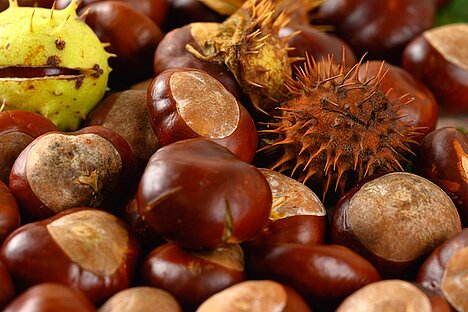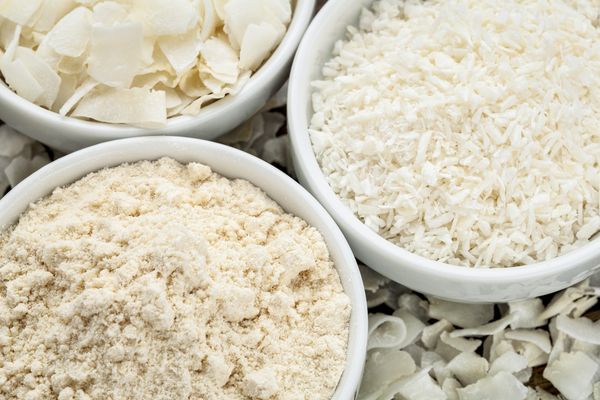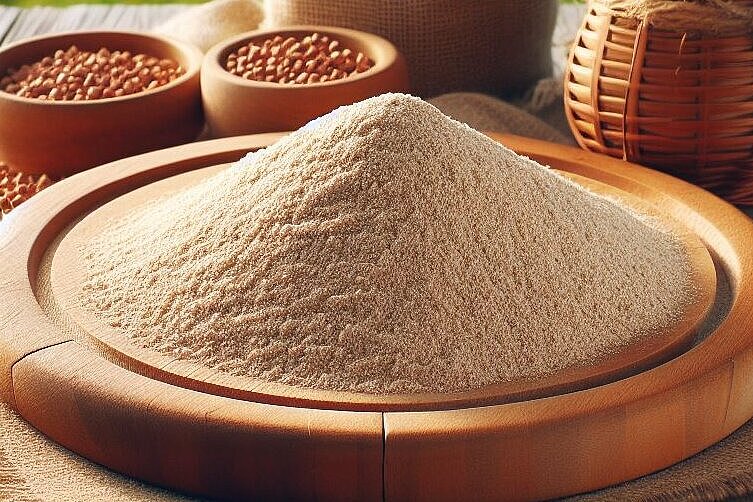Chestnut flour

The benefits of chestnut flour for dogs
Chestnut flour has several benefits for dogs that you should know about. Firstly, chestnut flour is gluten-free and therefore well tolerated by dogs with a gluten intolerance or a grain allergy. Gluten is a gluten protein that is found in many types of grain such as wheat, rye or barley. Some dogs react to it with digestive problems, skin problems or itching. Chestnut flour does not contain gluten and can therefore be a good alternative to conventional flours.
On the other hand, chestnut flour is rich in fiber, which can help your dog's digestion. Dietary fibers are indigestible plant components that bind water in the intestines, making the stool softer and more voluminous. This can prevent constipation and stimulate bowel movements. Fiber can also increase your dog's feeling of satiety and thus contribute to a healthy weight.
Another benefit of chestnut flour is its high vitamin C content, which is important for your dog's immune system. Vitamin C is an antioxidant that neutralizes free radicals in the body and thus prevents cell damage. Vitamin C also supports the formation of collagen, a structural protein that is responsible for the strength of skin, bones and joints. Vitamin C can also promote wound healing and inhibit inflammation.
The disadvantages of chestnut flour for dogs
However, chestnut flour also has some disadvantages for dogs that you should be aware of. Firstly, chestnut flour is very high in calories and can therefore lead to obesity if you feed it in excessive quantities. One cup of chestnut flour has about 450 calories, while one cup of wheat flour has only about 350 calories. This is because chestnut flour is high in carbohydrates, which serve as a source of energy. Although carbohydrates are not bad for dogs, they should only be fed in moderation.
On the other hand, chestnut meal can lead to bloating if your dog is not used to it or if you introduce it too quickly. This is because chestnut meal is difficult to digest and forms gases in the intestines. This can lead to discomfort and abdominal pain for your dog. To avoid this, you should only feed chestnut meal in small quantities and increase it slowly. You should also make sure that your dog drinks enough water to aid digestion.
Chestnut flour is a gluten-free flour made from chestnuts that has several health benefits for dogs. It is rich in fiber, vitamin C and other nutrients that are good for your dog's immune system, digestion and weight. However, chestnut meal also has some disadvantages for dogs. It is very high in calories and can lead to obesity if you feed it in too large quantities. It can also cause bloating if your dog is not used to it or if you introduce it too quickly.
If you want to use chestnut meal for your dog, you should therefore keep a few things in mind. Firstly, you should ask your vet whether chestnut flour is suitable for your dog and how much you can feed him. Secondly, you should only feed chestnut meal in small quantities and increase it slowly. Thirdly, make sure your dog drinks enough water to aid digestion.
Chestnut meal can be a healthy alternative for your dog if you use it correctly.
If you notice any signs of hypersensitivity or poisoning in your dog, you should see your vet immediately. We are not a substitute for a vet, but we try to be as accurate as possible. Every dog reacts differently and we recommend you get a second opinion or consult your vet if in doubt.
Stay healthy and take good care of your four-legged friend!😊
Similar to Chestnut flour
Almond flour is a flour made from blanched and peeled almonds. The almonds are ground into a fine powder that is ideal for baking. Almond flour has a high content of protein, fiber, healthy fats,...
Coconut flour is a by-product of coconut oil production. After the coconut meat has been pressed to extract the oil, a dry and fibrous residue remains. This is then ground into a fine flour that has...
Buckwheat is not a real grain, but belongs to the so-called pseudo-cereals such as quinoa or amaranth. This means that it does not contain gluten and is therefore suitable for dogs with a gluten...
Chestnut flour has a number of benefits for dogs that you can take advantage of. Firstly, it is gluten-free and therefore well tolerated by dogs with gluten intolerance or a grain allergy. Secondly,...



